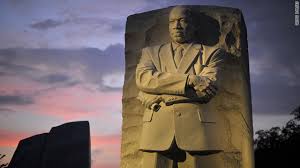Entries in love (9)
How Love Covers A Multitude of Sins
 Monday, November 9, 2015 at 08:50PM
Monday, November 9, 2015 at 08:50PM A long time ago one of my best friends was having difficulty resting in the grace of God. He was plagued by the memory of sin and tormented by the guilt he carried. He was a Christian--a committed Christian by nearly any standard--yet his heart was not at rest. I had no patience for problems like this. My approach was to confidently (and ignorantly) quote a Bible verse and move on to something more pleasant.
“Seriously man, give it a rest,” I said. “The Bible says ‘Love covers a multitude of sins.’”
“Yes, but how?”
“Who cares how? I’m just glad it does.”
I was selfish: my version of the truth conveniently served me. There seemed only one possible interpretation of this verse--God loved me, and he covered my sin. Like so many things, I was technically right, yet completely missed God's heart.
This one exchange, uttered decades ago, recently found its way to the surface of my thoughts again. How does love cover sin? Whose love? And why? While I was correct that the love of Jesus is adequate for our guilt and shame, it turns out I quoted a verse that has very little to do with the sacrifice of Jesus. Here’s the actual verse in a slightly fuller context:
The end of all things is near. Therefore be clear minded and self-controlled so that you can pray. Above all, love each other deeply, because love covers over a multitude of sins. Offer hospitality to one another without grumbling. Each one should use whatever gift he has received to serve others, faithfully administering God's grace in its various forms. (I Peter 4: 7- 10)
Peter was talking not about the sacrificial love of Jesus, but rather the love we are called to demonstrate toward others. Peter expected the imminent return of Jesus, so he instructed us to think clearly, act reasonably, and pray hard. The intended result leads us to love deeply; we can cover the sins of others. The Spirit of God, speaking through Peter, is calling us to do for others what Jesus has done for us.
I can still hear my friend’s voice, “Yes, but how?” Perhaps it’s time to suggest three possibilities from Peter's words:
§ Love covers sin by filling the void: When we see the sins of others we have a choice; we can rush to expose the sinfulness we see, spreading guilt and condemnation, or we can come to the aid of those who are the victims of sin. We can become God's police force and blow the whistle on sinfulness, or we can become God's ambulance and provide triage to the wounded. All sin comes with a price. Someone, somewhere is paying the price. We are called to cover the losses left behind by sin: a husband leaves his wife and child--who will fill the void for a suddenly- single mother? A government exploits the people it should serve--who will serve the unmet needs of the people? We have a choice: crusade against injustice or love those in need.
§ Love covers sin by 'gifted service': In a practical expression of his grace, God himself lavishes gifts beyond reckoning and directs us to employ these gifts in the service of others. Too many believers revel in the crazy generosity of God assuming it's all about them. Do we see God's saving action as a hand-out to us or an invitation to join him in rescuing others? The way of the world is to receive a gift and enjoy it for our own pleasure. That's what consumers do. The way of the kingdom is ask the Father, “what would you like me to do with this?” That's what disciples do.
§ Love covers sin by offering hospitality: God's love serves people, especially strangers. The New Testament word for “hospitality” suggests showing love toward the stranger, the foreigner, and the outcast. It suggests quite literally that we should make a place for others. It's not as if there are a limited number of seats at the Father's banquet table. Our assignment is to joyfully welcome others. When we add another place at the table we prepare ourselves for the day when the Father will say, “you really did it for me.”
Whatever the Father has done for us, he encourages us to do for others. His gifts come with the empowerment for us to give them again and again. Jesus told Peter and the disciples, "freely you've received, therefore freely give" (Matthew 10:8) Every benefit we have ever received from the Father is also an empowerment to give to others. It will cover a multitude of sin--but don't take my word for it, take Peter's.
Seeing Through The Hologram
 Monday, October 12, 2015 at 05:03PM
Monday, October 12, 2015 at 05:03PM  It’s the deepest and most beautiful problem I have ever faced. This challenge has filled me with vulnerability and risk. Working through this wonderful problem has yielded life and peace.
It’s the deepest and most beautiful problem I have ever faced. This challenge has filled me with vulnerability and risk. Working through this wonderful problem has yielded life and peace.
Before I get to the problem you must know this: I like to hide. You won’t hear what I’m thinking right away. Some thoughts you will never hear. I craft the image I want you to see; I live in fear you’ll see through the hologram. Hidden in my deepest space is the driving fear, if you really knew me, you wouldn’t like what you see. You say you admire transparency but I know the truth: you will be repulsed if I let you in all the way.
And yet, this is not the problem.
The problem is: the one who knows me best loves me the most. God. God is the problem; all my defenses are useless before him. And it fills me with terror.
Enough about me. Other people have had this problem. A man named David had the same fears:
You have searched me, Lord, and you know me.
You know when I sit and when I rise;
You perceive my thoughts from afar.
You discern my going out and my lying down;
You are familiar with all my ways.
Before a word is on my tongue you, Lord, know it completely.
You hem me in behind and before, and you lay your hand upon me.
Such knowledge is too wonderful for me, too lofty for me to attain. (Psalm 139:1-6)
It is no surprise to me that David wants to run: in verse seven he asks the same question I would ask:
Where can I go from your Spirit? Where can I flee from your presence?
By the end of this Psalm David presents the fruit of his struggle. He surrenders. God wins. David opens the secret places to the One who has already been there all along:
Search me, God, and know my heart; test me and know my anxious thoughts. See if there is any offensive way in me, and lead me in the way everlasting. (Psalm 139:23-24)
David invites the Creator into the violent places hidden deep in his heart. In these places God will discover David’s longings, lusts, and insecurities. Am I willing to make the same invitation?
And this is only half the problem. Because the Great Invader of my most secret places—the very God who is holy, holy, holy—loves me despite the tempest raging in my secret place. Not only has God not been fooled by the hologram I have perfected, he loves the confused mess that is the reality of my heart. And I hate this. His love, too, causes me to want to run.
In my pride I resent that there is someone so great, so kind, so condescending as to look beyond my faults. I writhe under the pain that his love for me is greater than my self-love—greater, deeper, more pure, altogether clean. My insecurities tempt me to reduce the eternal love of God to just another human love that will disappoint in the end.

You’re asking, “What could be so wrong with being loved?” Yet this is precisely where the challenge lives. Do I dare believe such love exists, and that I am the focus of such love? To make peace with this invasive love means the end of my pride, my self-love, my shame and my insecurities. It means (as I said at the beginning) risk and vulnerability because it means absolute surrender to the Other.
If you’ve never worked through the implications of being loved perfectly, you have a journey yet to take. Anyone can accept a gift—even eternal life—without receiving perfect love. The discovery of the Father’s boundless love is an invitation to strip away every other crutch we use to prop up our self worth. Submitting to perfect love means we lose ourselves in him. Are you ready for that kind of loss? Our pride, the shame to which we cling, and our insecurities all whisper, “Take Care! You can never return if you start down this road.”
And they are right.
An Exercise Into the Word of God and the Love of God
 Thursday, July 2, 2015 at 09:31AM
Thursday, July 2, 2015 at 09:31AM  Let’s embark today in an exercise on reading the scripture. It’s also an exercise in the love of God. It’s a pretty good two-fer.
Let’s embark today in an exercise on reading the scripture. It’s also an exercise in the love of God. It’s a pretty good two-fer.
When we come to the Bible part of our task includes inviting God’s word into our heart as well as our mind. The mind is concerned with understanding. The heart is concerned with our whole being (the mind included). Thomas à Kempis demonstrates this in his simple saying, “I would rather feel contrition than know how to define it.” The mind is satisfied with definitions. The mind too easily confuses knowing with being. The mind forgets that knowledge puffs up, but love builds up.
Love is its own way of knowing. Simone Weil instructed us, “Love is not consolation. It is light.” We need this light. I need it. So do you.
But how can we move from knowledge to being? Today, let’s explore one path.
Perhaps you’ve encountered this famous passage?
“Love is patient, love is kind and is not jealous; love does not brag and is not arrogant, does not act unbecomingly; it does not seek its own, is not provoked, does not take into account a wrong suffered, does not rejoice in unrighteousness, but rejoices with the truth; bears all things, believes all things, hopes all things, endures all things. Love never fails . . . “ (1 Corinthians 13:4-8)
We have heard this passage at so many weddings and funerals, and in so many sermons, we could be excused if we think we “know” it. If you have five minutes more, and a quiet place, let me invite you into this exercise:
First: did you read the words, or skip over them as soon as you realized it was the famous love passage?
Second: Did you read the words silently in your head, or did you speak them out loud? The path from knowledge to being begins with the engagement of our voice and ears, as well as our eyes: did you know that faith comes by hearing, and not by seeing?
Third: without doing any injustice to the sacred text, let’s personalize it. This time read the passage aloud, substituting “God’s love for me” instead of “love.” Let your ears hear your voice speaking of God’s love for you:
God’s love for me is patient, God’s love for me is kind and God’s love for me is not jealous; God’s love for me does not brag and God’s love for me is not arrogant, God’s love for me does not act unbecomingly; God’s love for me does not seek its own, God’s love for me is not provoked, God’s love for me does not take into account a wrong suffered, God’s love for me does not rejoice in unrighteousness, but rejoices with the truth; God’s love for me bears all things, God’s love for me believes all things, God’s love for me hopes all things, God’s love for me endures all things. God’s love for me never fails.
And fourth, let’s invite our enemies into God’s love. Think of someone you dislike (perhaps you even hate him or her). Do not let your mind hijack this fourth and final step—think of an actual person. Bill, the guy at work who tries to subvert your work and get you fired. Susan, the girl at school who is so mean to you every day. If you are particularly daring, think of that loved one who has hurt you so deeply, betrayed you and wounded you so deeply you feel you might never recover. Speak his or her name. Bring to mind the face of this person.
Have you selected someone? Good. As our fourth step let’s speak God’s love over them. Out loud. Like this:
God’s love for _____ is patient, God’s love for _____ is kind and God’s love for _____ is not jealous; God’s love for _____ does not brag and God’s love for ______ is not arrogant, God’s love for ______ does not act unbecomingly; God’s love for ______ does not seek its own, God’s love for ______ is not provoked, God’s love for ______ does not take into account a wrong suffered, God’s love for ______ does not rejoice in unrighteousness, but rejoices with the truth; God’s love for ______ bears all things, God’s love for ______ believes all things, God’s love for ______ hopes all things, God’s love for ______ endures all things. God’s love for ______ never fails.
Did you do it? I hope so, because the love of God is never complete in us until we realize it is for our enemies as well as ourselves.
My grand hope for you today is that you will begin a journey into the word of God and the love of God, and discover its four dimensions: how wide, and long, and high, and deep is the love of God—for you, and indeed for all he has made.
Why not receive Students of Jesus in your inbox? Subscribe to our email newsletter and never miss a post.
Misdirection
 Tuesday, April 21, 2015 at 08:53AM
Tuesday, April 21, 2015 at 08:53AM  It turns out the serpent was right, which makes him the worst kind of liar. You remember the scene played out in the garden that provided seed for all creation: the serpent said, “You will not die; God knows that when you eat from it your eyes will be opened, and you will be like God, knowing good and evil.” It was all true.
It turns out the serpent was right, which makes him the worst kind of liar. You remember the scene played out in the garden that provided seed for all creation: the serpent said, “You will not die; God knows that when you eat from it your eyes will be opened, and you will be like God, knowing good and evil.” It was all true.
But it was all beside the point.
This is the most dangerous kind of lie: misdirection. By the time the angel took up a flaming sword to guard Eden’s entrance, we began to see that the issue was fruit: God was concerned with the fruit of the knowledge of good and evil.
Generations later we’ve discovered that it’s precisely because we will not die that the fruit was so dangerous. It’s precisely because we would become like God that the fruit carried such power. God’s imagination reached beyond ours: imagine people who know the difference between good and evil, a people who judge everything they see, a people without the necessary love to temper such knowledge. We became beings filled with judgment and enmity forever and ever.
The fruit of knowing good from evil is that we really do become like God—and we think we are entitled to judge the world.
Generations later a repentant know-it-all named Paul or Tarsus tried to warn us: “knowledge puff up, but love builds up.” It turns out having a big intellect is no defense against having a small mind, or worse: a heart without the love of God.
The result—the fruit—of knowing good from evil is that we feel empowered and authorized to judge others. And who can withstand our judgment? We are correct! Only later, when the wheat is separated from the tares, do we realize that being right was never the goal. We were called to love. And indeed we have loved: we have loved knowledge, and the feeling of power it brings, more than we have loved God or our neighbors.
And love, as it so often happens, is the issue. Only love can temper knowledge. Only love volunteers to take judgment upon Itself. Only love has the maturity to handle the awful burden of certainty. The Creator wanted first to nurture in us the quality of his character (“God is love”) before allowing us to know good and evil. Only love can hold knowledge. Only love protects us from becoming the very monsters we feel privileged to destroy. The difference between knowledge and love is the difference between inflation and substance, between a hollow core and a hallowed heart.
It turns out God is many things and we can “be like him” in many ways. But the wise and loving Father knew that love is the first and ultimate calling if we desire to be like him. Perhaps grace second, maybe service third, and somewhere way down the line, knowledge.
Why not receive Students of Jesus in your inbox? Subscribe to our email newsletter and never miss a post.
Surface the Fear
 Thursday, April 16, 2015 at 09:17AM
Thursday, April 16, 2015 at 09:17AM  It sounds so beautiful, so calm, so reassuring: “Perfect love casts out all fear.”
It sounds so beautiful, so calm, so reassuring: “Perfect love casts out all fear.”
Until we realize that “casting out” is dangerous business. Perfect love casts out fear, but part of that process is surfacing the fear hidden in us.
When fear finds its way to the surface we find ourselves shouting at Jesus, “We’re perishing! Don’t you care?” Fear urges Jesus, “Don’t stop for that woman, hurry along to my daughter—she’s dying!” Fear doesn’t want talk about lilies of the field or birds of the air—fear wants clothing, food, safety, or better yet cold hard cash. Fear speaks with an urgent voice.
Still other times fear walks a few steps behind, whispering “Why are we going to Jerusalem? We will die.” Fear directs our eyes to the crowds and the soldiers, the wind and the waves, the ledger and the purse, the hospital and the grave. Fear knows the insidious tone of voice; the feel of goose bumps down the arm; the single idea that triggers a thousand racing thoughts; even the smells of deep memories.
Yet even fear itself is afraid of the abyss, and searches for anywhere—anyplace to exist. Fear itself is afraid. It settles for some flesh, any flesh, on which to work its way. There’s nothing special about humanity: swine will do. Just give us something to torment.
But here, exactly here, fear overplays its hand. It is no different than us—it is also afraid. Love flushes the quarry and sends it running zigzag for its own life. Love exposes the lie, brings the light, and vampire-fear dissolves. Love casts out Wormtongue and sends him back to Isengard.
There’s a command. A flurry of events. Suddenly, the world looks different. Fear gives way to peace, followed by impossible joy. It’s a narrow passage. Fear would have us roaming naked among the tombs. Love would have us seated with Jesus, clothed and sane. Fear demands that God himself should ignore the problems of others. Love suggests that nothing is final except itself. Fear cries out in despair. Love leads to faith.
We want the fear to be gone. So does our Master. He takes our hand, turns us toward the torment: “Don’t be afraid, only believe.”
 Why not receive Students of Jesus in your inbox? Subscribe to our email newsletter and never miss a post.
Why not receive Students of Jesus in your inbox? Subscribe to our email newsletter and never miss a post.


